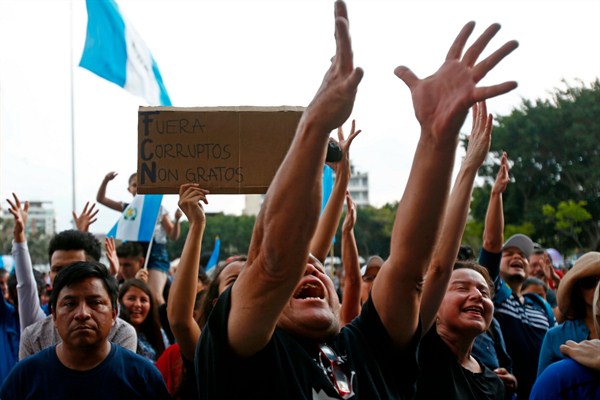A new attorney general took office in Guatemala last week amid sharp tensions over the role of a United Nations-backed anti-corruption commission that has helped bring high-profile charges against some of the country’s most powerful politicians. Maria Consuelo Porras, a former substitute judge for Guatemala’s Constitutional Court, will run the country’s Public Ministry and direct its criminal, human rights and anti-corruption investigations. The outgoing attorney general, Thelma Aldana, and her predecessor, Claudia Paz y Paz Bailey, showed impressive leadership and independence in investigating and prosecuting these sorts of cases. Now their enemies want those advances reversed.
Across Central America, public prosecutors are taking on a key role in investigating and dismantling deeply rooted organized criminal networks. But Guatemala’s widening corruption probe, which brought down a sitting president, Otto Perez Molina, in 2015 and threatens to implicate the current president, Jimmy Morales, as well as scores of others, has triggered a backlash from entrenched economic and political elites who want to protect themselves from future investigations.
Foes of the U.N. anti-impunity commission, known as CICIG for its initials in Spanish, seemed to score a hit in early May, when U.S. Senator Marco Rubio announced he would seek to freeze $6 million in U.S. funding for CICIG. The United States provides about 40 percent of the commission’s funding. Rubio’s announcement came days after the U.S. Helsinki Commission, a federal agency, held a hearing on CICIG’s alleged malfeasance in a case in Guatemala involving the wealthy Bitkov family.

